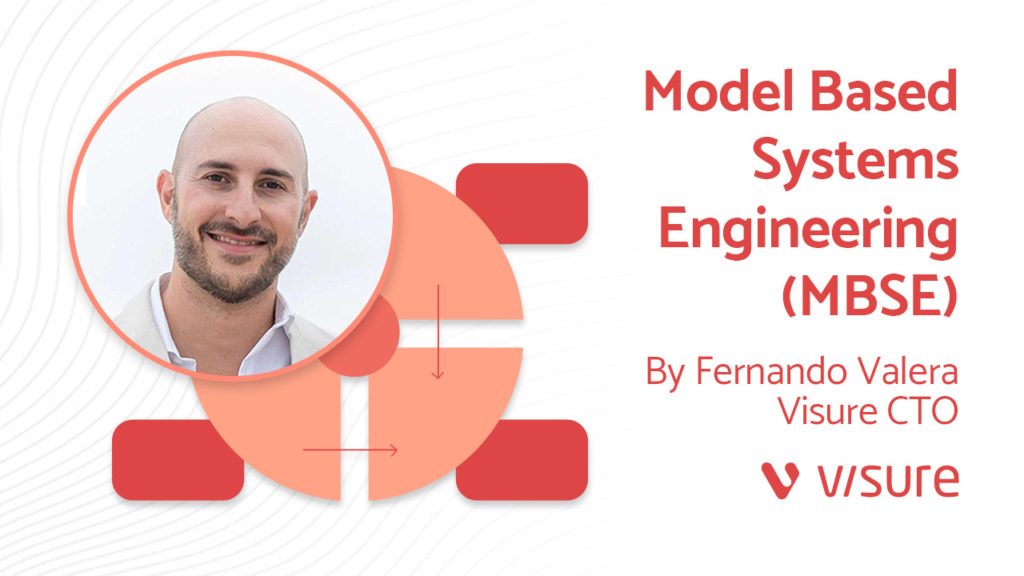The Step by Step Course To Learn Model-Based Systems Engineering Methodology
Join our waiting list to gain free access once we release the online training course.

This course includes:
1 Year full access
Access on Mobile
Certificate of completion
Why Top Leading Industry Organizations Choose Visure’s Course Trainings
Throughout this course, you will gain access to the best up-to-date practices with industry specific examples.

3+ Hours On-Demand Video

Exam & Certificate of Completion

IREB Certified Instructors

Trained Over 1,000+ Students

What You'll Learn
Understand the fundamentals of systems engineering and how they relate to the MBSE approach
Learn about the different MBSE methodologies and processes, such as Model-Driven Development (MDD) and Systems Modeling Language (SysML)
Familiarize yourself with the different modeling languages and techniques used in MBSE, such as UML, SysML, and MARTE
Learn how to verify and validate system models in MBSE using simulation, analysis, and testing techniques
Understand how to integrate models across different systems and subsystems using model transformation and model federation techniques
Explore the tools and platforms used to support MBSE in an enterprise environment, such as MagicDraw, Cameo Systems Modeler, and No Magic
Gain the skills and knowledge needed to effectively model, analyze, and optimize complex systems using the MBSE approach
and so much more!
Course Content
This is exactly what you will learn throughout the MBSE Course.
Module #1: Introduction
1 lectureModule #2: Understanding Systems Engineering Basics
5 lecturesModule #3: MBSE Methodologies and Processes
2 lecturesModule #4: Modeling Languages & Techniques
4 lecturesModule #5: Modeling Verification & Validation
3 lectureModule #6: Implementing Model Integrations
4 lectureModule #7: MBSE Enterprise: Understanding Tools and Platforms
1 lectureWho Is This Course For?
This course is designed for professionals building complex systems in safety-critical and regulated industries.

Systems Engineers

Project Managers

Development Engineers

Quality Managers

Methodology Managers
About the Course
The Model-Based System Engineering (MBSE) course is designed to provide system engineers with a deep understanding of the MBSE approach and how it can be applied to system engineering projects.
The course covers key concepts, methods, tools, and applications of MBSE, including systems engineering basics, MBSE methodologies and processes, modeling languages and techniques, modeling verification and validation, implementing model integrations, and MBSE enterprise tools and platforms.
By the end of the course, students will have the skills and knowledge needed to create and use system models to develop and analyze complex systems, and to integrate MBSE into the system engineering process.
This course is ideal for system engineers looking to enhance their understanding of the latest MBSE approach and take their system engineering skills to the next level.

MSBE: Model Based Systems Engineering Course
This course includes:
Model-based System Engineering Course
(Value of $1,500)
1 Download resource
(Value of $50)
Certificate of Completion
(Value of $450)
BONUS: Early Access to Requirements Engineering Methodology Courses
(Value of $150)
BONUS: Lifetime access to Member Portal: Exclusive Resources, Whitepapers & Events
(Value of $500)
TOTAL VALUE
(Value of $2,650)
Value Pricing is based on the 1 On 1 Corporate Trainings that Visure Engineer Experts Offer
1,000+ Highly Regulated Organizations Trust Visure














What Top Industry Professionals Say About Our Courses
FAQs
If I'm a student, can I still register for the course?
Great question! Yes, this course is ideal for students who are aiming to join Global organizations building complex products and systems.
What does IREB & CPRE Certified mean?
IREB stands for International Requirements Engineering Board – a non-profit organization, who’s provider of the CPRE (Certified Professional for Requirements Engineering) certification scheme.
The CPRE by IREB® is a certification for everyone involved professionally with Requirements Engineering, Business Analysis and software and systems development.
Does Visure Solutions provide Corporate Trainings?
Great question! Yes, we do provide corporate trainings to organizations of any level. For more information, please visit our Contact Us Page or email us at info@visuresolutions.com.
How does the Certification work?
Once you complete the mini exams of each module within the course, you’ll be able to access the certification exam.
In order to pass the exam, you need a score greater than 70. If the score is reached, a certification will be generated by with your name and also registered within our database for validation.
Which payment methods do you accept?
We accept all payment methods, including:
- Visa
- MasterCard
- AMEX
What happens if I'm not satisfied with the course?
Great question! If you’re not satisfied with the course training and content, we will provide a full refund upon request. NO QUESTIONS ASKED.
Terms & Conditions Apply.
How long will I have access to the course?
Great question! You will gain full access to the course and all the resources available for an entire year from the date you registered.
